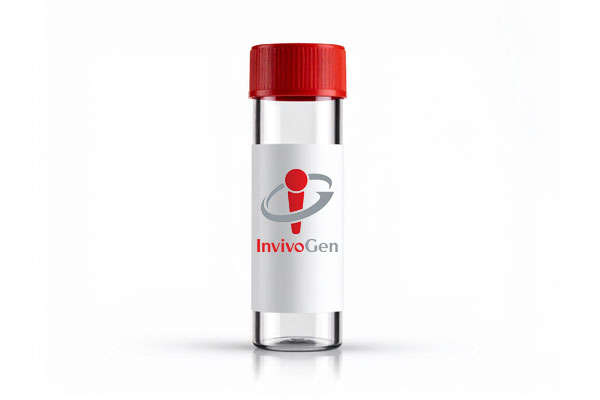
pUNO1-hTRAF6-DN
-
Cat.code:
puno1-htraf6-dn
- Documents
Expression-ready ORF Clones
Alias: RNF85
TNF receptor associated factor 6.
TNF receptor-associated factor 6, E3 ubiquitin protein ligase.
Dominant negative TRAF6
Tumor necrosis factor (TNF) receptor-associated factor 6 (TRAF6) plays a key role in signal transduction of both the TNFR superfamily and the IL-1R/ TLR superfamily. TRAF6 functions as a ubiquitin ligase that mediates the activation of IKK [1]. It participates in both the MyD88-dependent and MyD88-independent signaling pathways induced by TLRs. Upon TLR stimulation TRAF6 interacts with IRAK-1 or TRIF leading to the activation of NF-kB [2,3].
Dominant negative TRAF6 (aa289-522) harbors the C-terminal tumor necrosis factor receptor (TNFR)-associated factor (TRAF) domain but lacks the RING finger domain. Expression of this TRAF6-DN resulted in the suppression of NF-κB activity signaled by interleukin-1 (IL-1) but not by TNF [1].
References:
1. Deng L. et al., 2000. Activation of the IkappaB kinase complex by TRAF6 requires a dimeric ubiquitin-conjugating enzyme complex and a unique polyubiquitin chain. Cell 103(2):351-61.
2. O’Neill LA., 2002. Signal transduction pathways activated by the IL-1 receptor/toll-like receptor superfamily. Curr Top Microbiol Immunol. 270:47-61.
3. Sato S. et al., 2003. Toll/IL-1 receptor domain-containing adaptor inducing IFN-beta (TRIF) associates with TNF receptor-associated factor 6 and TANK-binding kinase 1, and activates two distinct transcription factors, NF-kappaB and IFN-regulatory factor-3, in the Toll-like receptor signaling. J Immunol. 171(8):4304-10.
Specifications
Human TRAF6-DN (pUNO1-hTRAF6-DN)
ORF size : 714 bp
Subclone : NcoI - NheI
Contents
- 20 µg of lyophilized DNA
- 2 x 1 ml blasticidin at 10 mg/ml
![]() Product is shipped at room temperature.
Product is shipped at room temperature.
![]() Lyophilized DNA should be stored at -20°C. Upon receipt, store blasticidin at 4°C or -20°C.
Lyophilized DNA should be stored at -20°C. Upon receipt, store blasticidin at 4°C or -20°C.
![]() Resuspended DNA should be stored at -20°C and is stable for up to 1 year.
Resuspended DNA should be stored at -20°C and is stable for up to 1 year.
![]() Blasticidin is a harmful compound. Refer to the safety data sheet for handling instructions.
Blasticidin is a harmful compound. Refer to the safety data sheet for handling instructions.
DOCUMENTS
Documents
Technical Data Sheet
Safety Data Sheet
Plasmid Map and Sequence
Plasmid Sequence
Certificate of analysis
Need a CoA ?